
Overview
This article presents nine powerful strategies designed to enhance customer retention. Among these strategies are:
- Personalized experiences
- Impeccable customer service
- The establishment of loyalty programs
Each strategy is underpinned by compelling data and relevant examples, illustrating that tailored interactions and robust customer engagement are pivotal in fostering loyalty and encouraging repeat business. Ultimately, these approaches drive long-term profitability for companies, making their implementation essential for sustained success.
Introduction
In a landscape where customer loyalty can either propel or hinder a business, grasping the intricacies of retention strategies is paramount for achieving success. This article explores nine impactful techniques that can substantially bolster customer retention, equipping brands with the essential tools to not only retain their existing clientele but also cultivate deeper connections. As companies endeavor to navigate the swiftly evolving landscape of consumer expectations, the pressing question persists: how can they effectively implement these strategies to foster enduring loyalty and engagement?
Parah Group: Comprehensive Conversion Rate Optimization for Enhanced Customer Retention
stands at the forefront of high-speed programs, meticulously designed to enhance . By leveraging , the agency empowers brands to optimize their existing resources effectively. This results in measurable outcomes, including a remarkable 36% on ads, alongside significant boosts in conversion rates and .
Their comprehensive approach ensures that every facet of a client's website and marketing strategy is meticulously aligned to cultivate . This alignment is vital, as strategic affinity initiatives are essential for forging emotional connections that foster enduring commitment and profitability, ultimately enhancing earnings without necessitating higher advertising expenditures.
For instance, companies that implement can witness substantial increases in client engagement and customer retention, with in re-engagement rates and a 21% rise in additional sales conversions. Parah Group's unwavering commitment to sustainable growth positions them as an indispensable ally for DTC companies aiming to thrive in a competitive landscape, where .
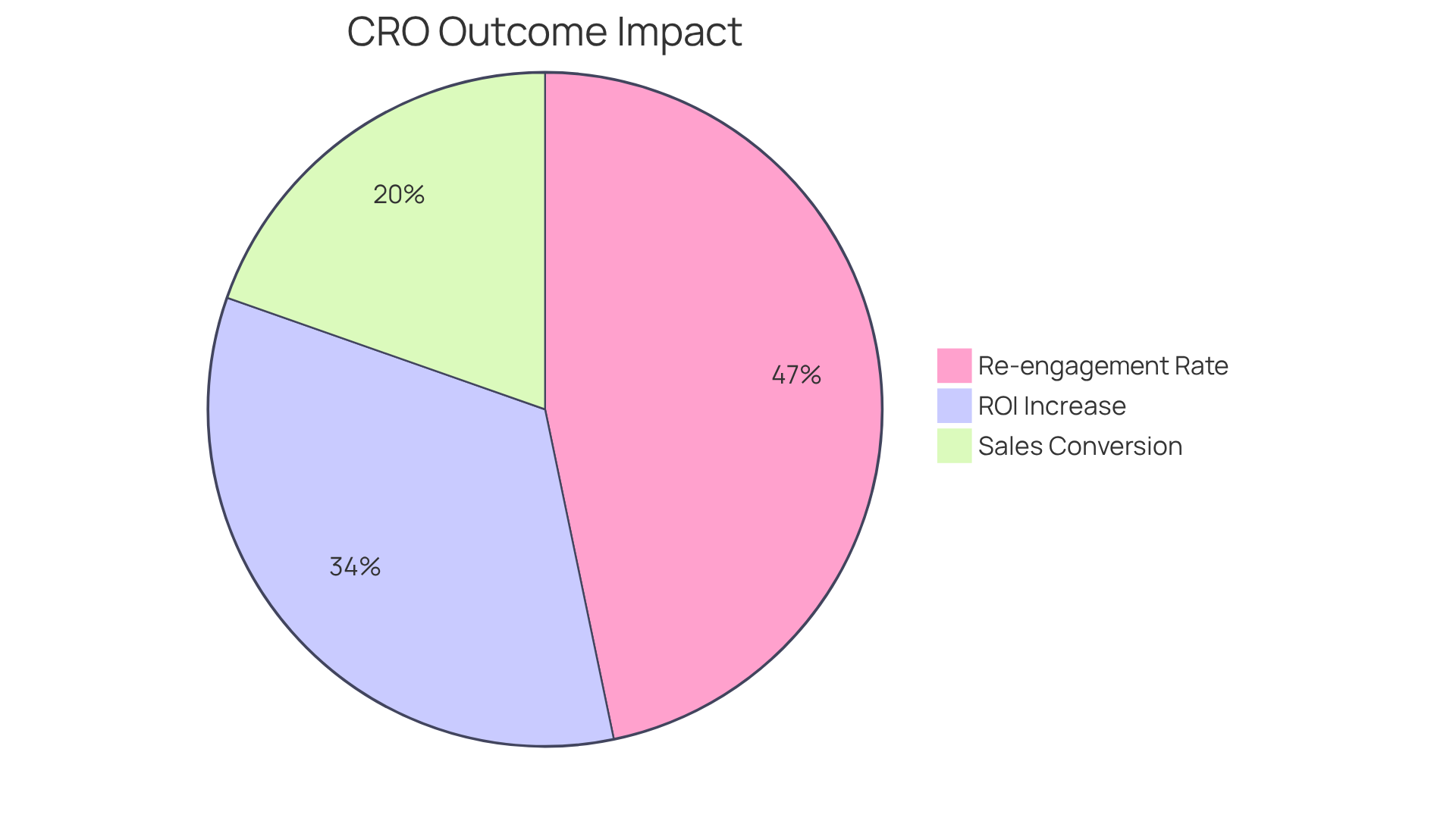
Collect Customer Feedback Regularly: Understand and Adapt to Consumer Needs
To enhance effectively, companies must establish regular , including surveys, interviews, and response forms. This practice not only aids in but also uncovers . By actively listening to clients, brands can to better meet consumer needs, and connection. Such not only but also positions the brand as a responsive and in the market.
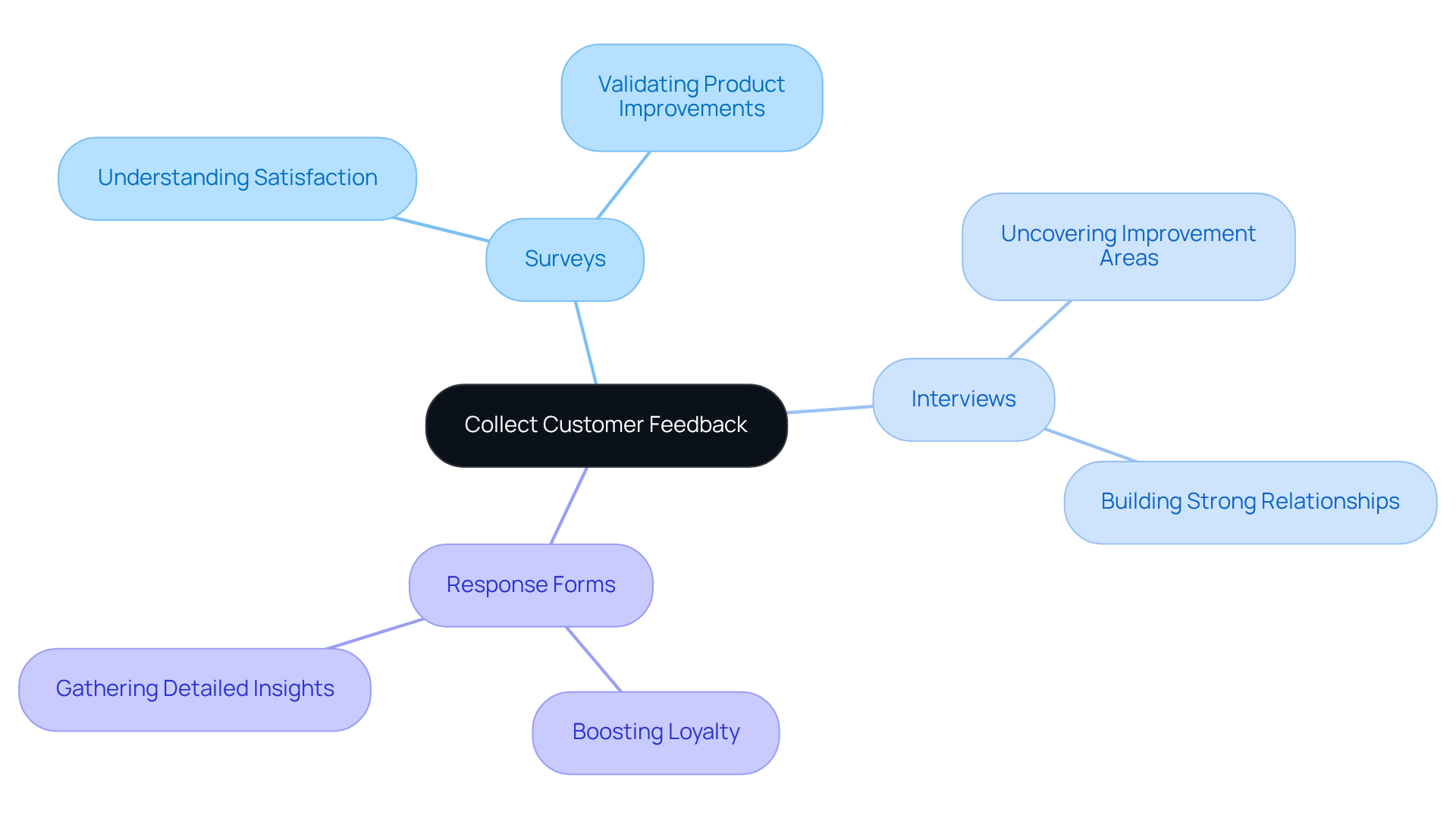
Offer Flawless Customer Service: Build Trust and Loyalty
Delivering is paramount for among clients. Brands must ensure that their support teams are not only well-trained but also at managing inquiries and issues with efficiency. By and , brands can create that drive repeat purchases and significantly improve .
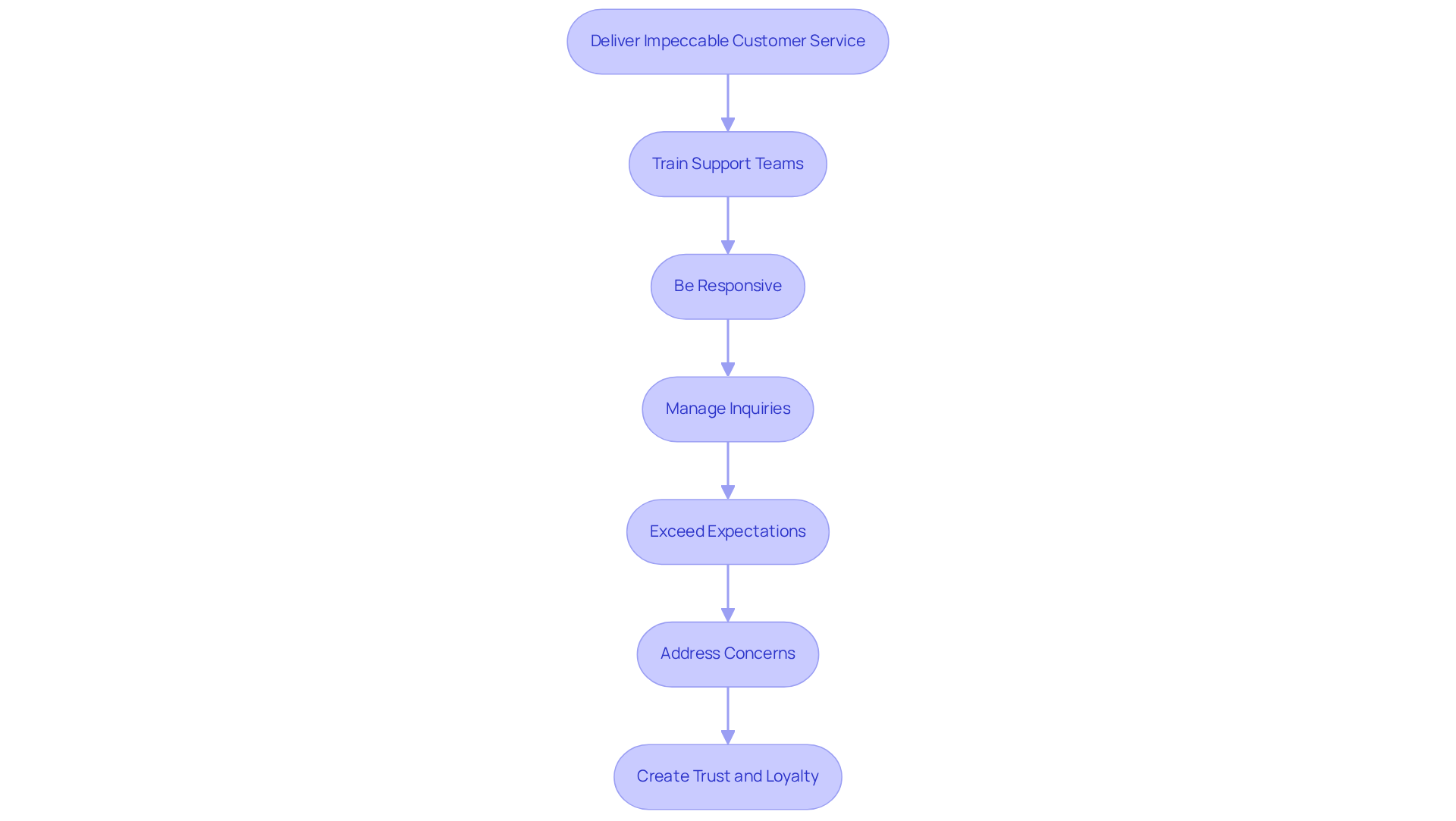
Provide a Personalized Experience: Tailor Interactions to Individual Preferences
Personalization is essential for . Brands can leverage data analytics to gain insights into individual preferences, allowing them to . This strategy includes:
By making clients feel recognized and valued, companies can forge , resulting in increased commitment and repeat transactions. Notably, 80% of clients appreciate customized shopping experiences, and organizations that offer tailored interactions experience a 60% higher likelihood of repeat business.
Moreover, businesses employing report a 25% profit increase due to enhanced efforts, as personalization nurtures and stimulates repeat purchases. As personalization evolves into a fundamental expectation, companies must prioritize these strategies to maintain a competitive edge and foster long-term commitment.
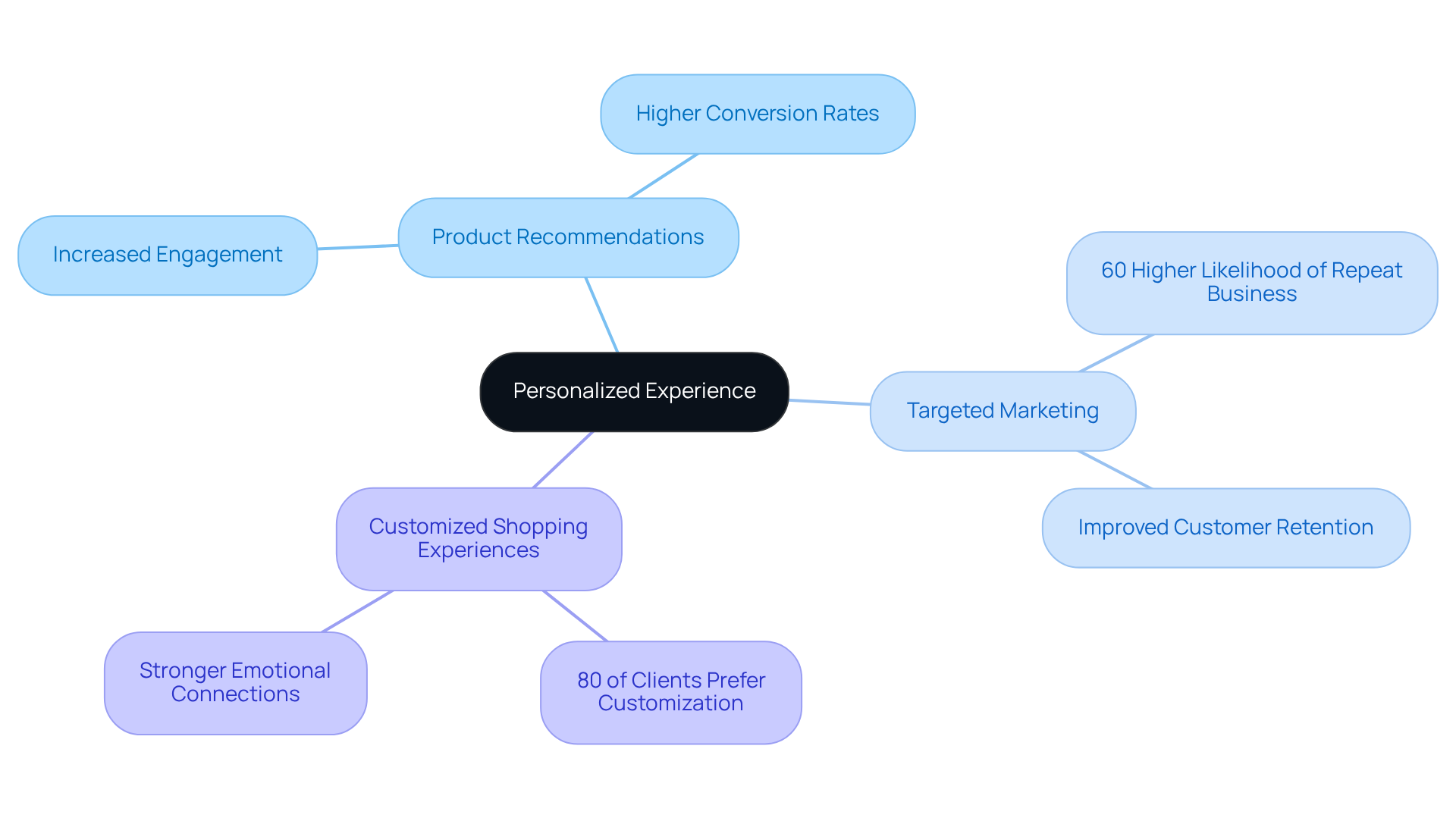
Establish a Strong Relationship: Foster Loyalty Through Engagement
To foster , companies must prioritize the establishment of . This objective can be effectively realized through such as:
- Personalized emails
- Active social media interactions
By creating opportunities for clients to engage not only with the company but also with one another, businesses can cultivate a devoted clientele that experiences a genuine sense of belonging and commitment.
Recent trends indicate a remarkable 28% increase in membership scheme usage in 2024, and 56% of report enhanced commitment through omnichannel initiatives, underscoring the significance of a unified engagement strategy. Successful companies, such as Starbucks, leverage rewards programs to strengthen client relationships, demonstrating that can substantially elevate and consumer insights. Moreover, 47% of consumers exhibit their commitment by recommending products to friends and family, highlighting the critical role of word-of-mouth in attracting new clients.
Engaging clients purposefully through customized experiences not only enhances satisfaction but also fosters , which is essential for customer retention and growth. Additionally, 34% of consumers display , reinforcing the importance of corporate responsibility in nurturing lasting relationships.
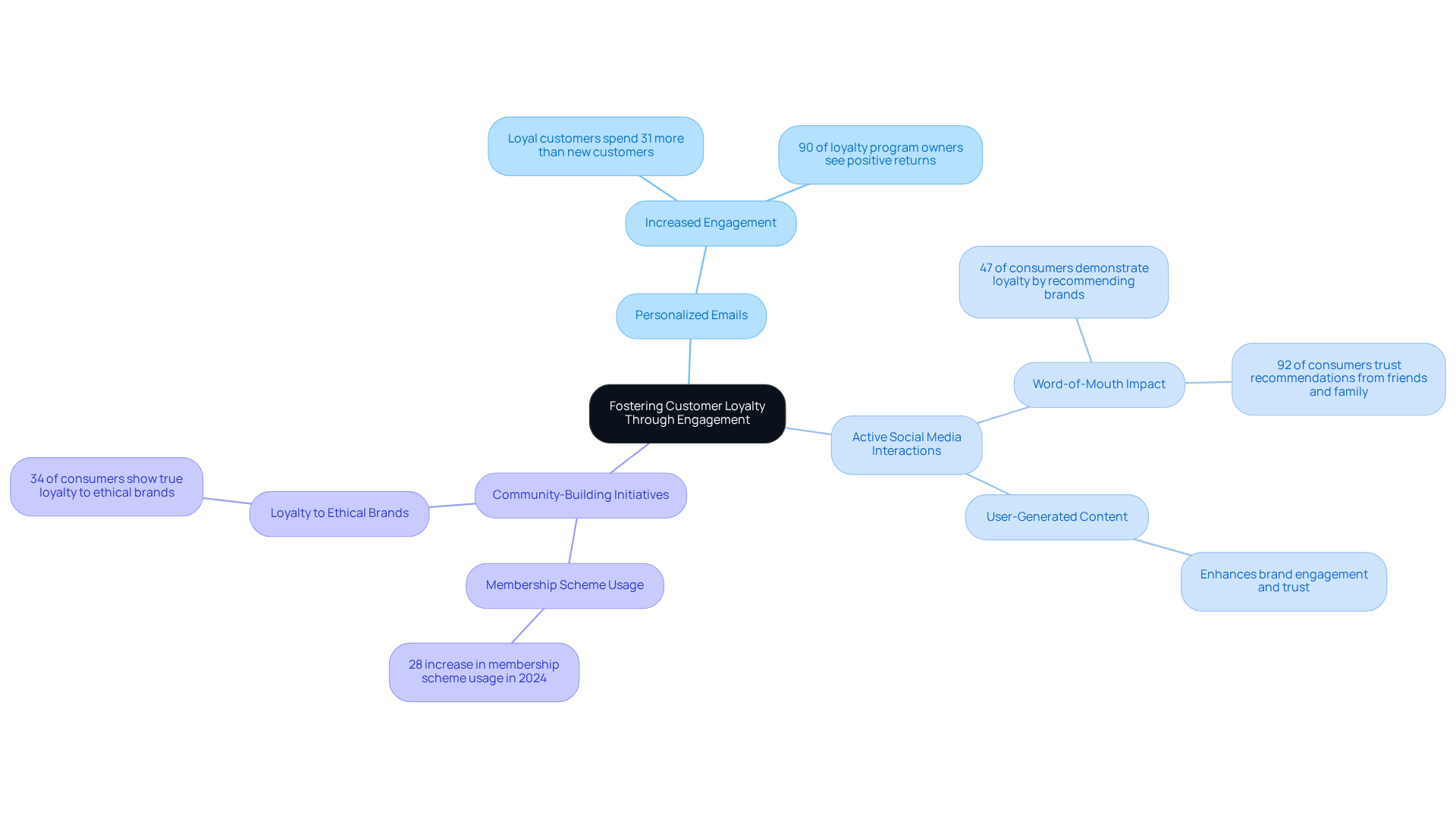
Offer Post-Purchase Services: Enhance Satisfaction After the Sale
Providing strong is not just beneficial; it is essential for enhancing . Brands must prioritize:
- Clear communication regarding
- Implement straightforward
By guaranteeing that clients feel supported even after their purchase, companies significantly increase and the likelihood of securing and fostering .
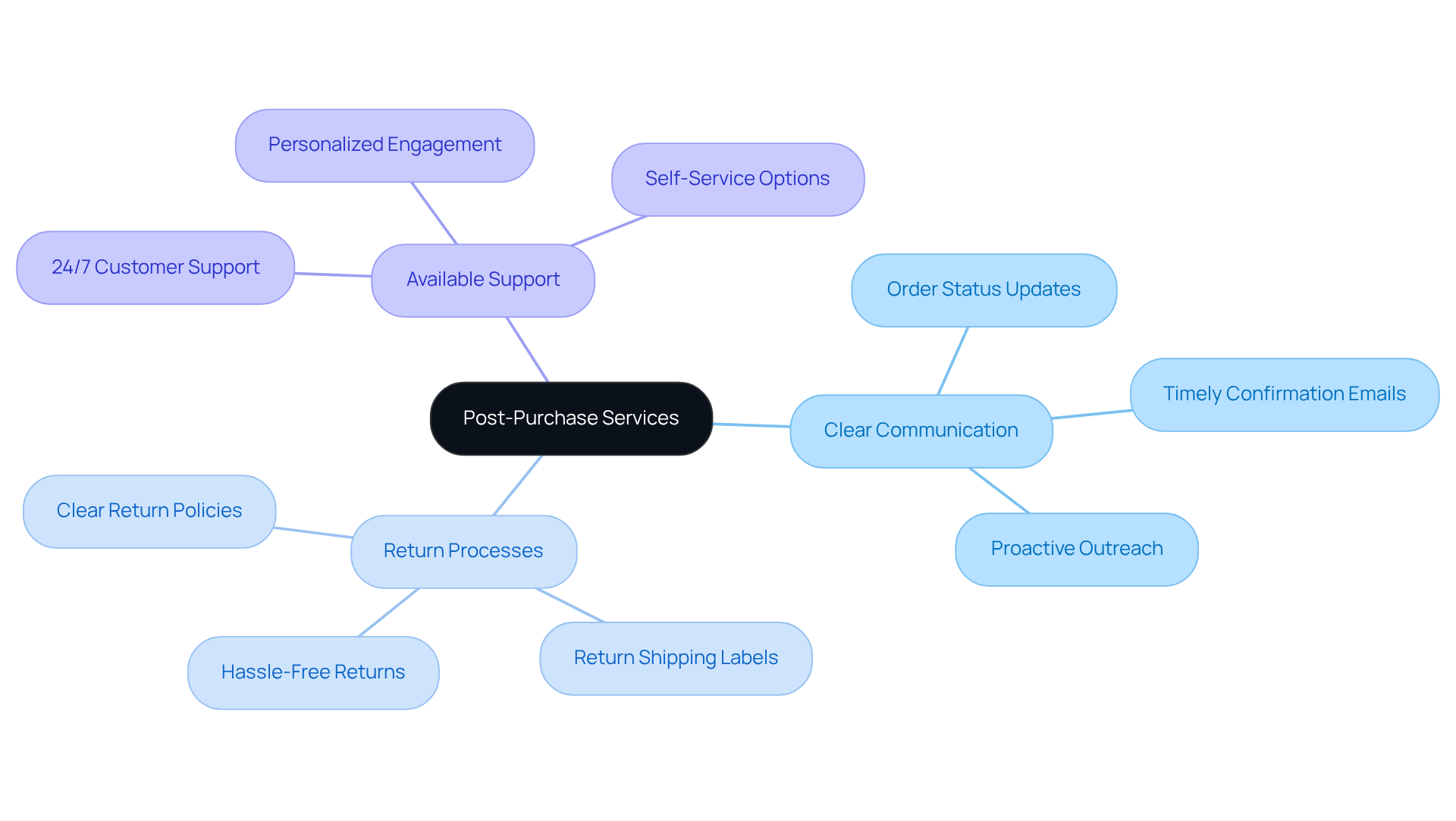
Build Dedicated Communities: Create a Sense of Belonging Among Customers
Creating devoted groups around a product significantly enhances . Brands can establish online forums, social media groups, or loyalty clubs where individuals interact, share experiences, and support one another. This connection not only strengthens but also promotes customer retention, as satisfied clients are more likely to recommend the brand to others. Notably, 68.7% of consumers prefer purchasing from companies they engage with in an , emphasizing the direct correlation between and customer retention.
abound. Harley Davidson has cultivated a robust community through outreach initiatives, resulting in a 20% profit increase in Q3 2022. Similarly, Lululemon has integrated community into its strategies, enhancing . are pivotal in this process, facilitating two-way communication to ensure that customer retention is achieved by acknowledging and addressing feedback. Indeed, 88.1% of consumers value communication with companies, which contributes to customer retention and leads to increased loyalty and purchase frequency when organizations actively listen to their feedback.
Furthermore, 81.5% of community members identify as advocates, illustrating the potential for dedicated patrons to . Additionally, 40.1% of consumers are more likely to contribute to customer retention for a brand due to participation in an online community associated with that brand. By emphasizing community-building, companies can create a robust ecosystem that not only fosters customer retention but also transforms clients into passionate supporters, ultimately driving .
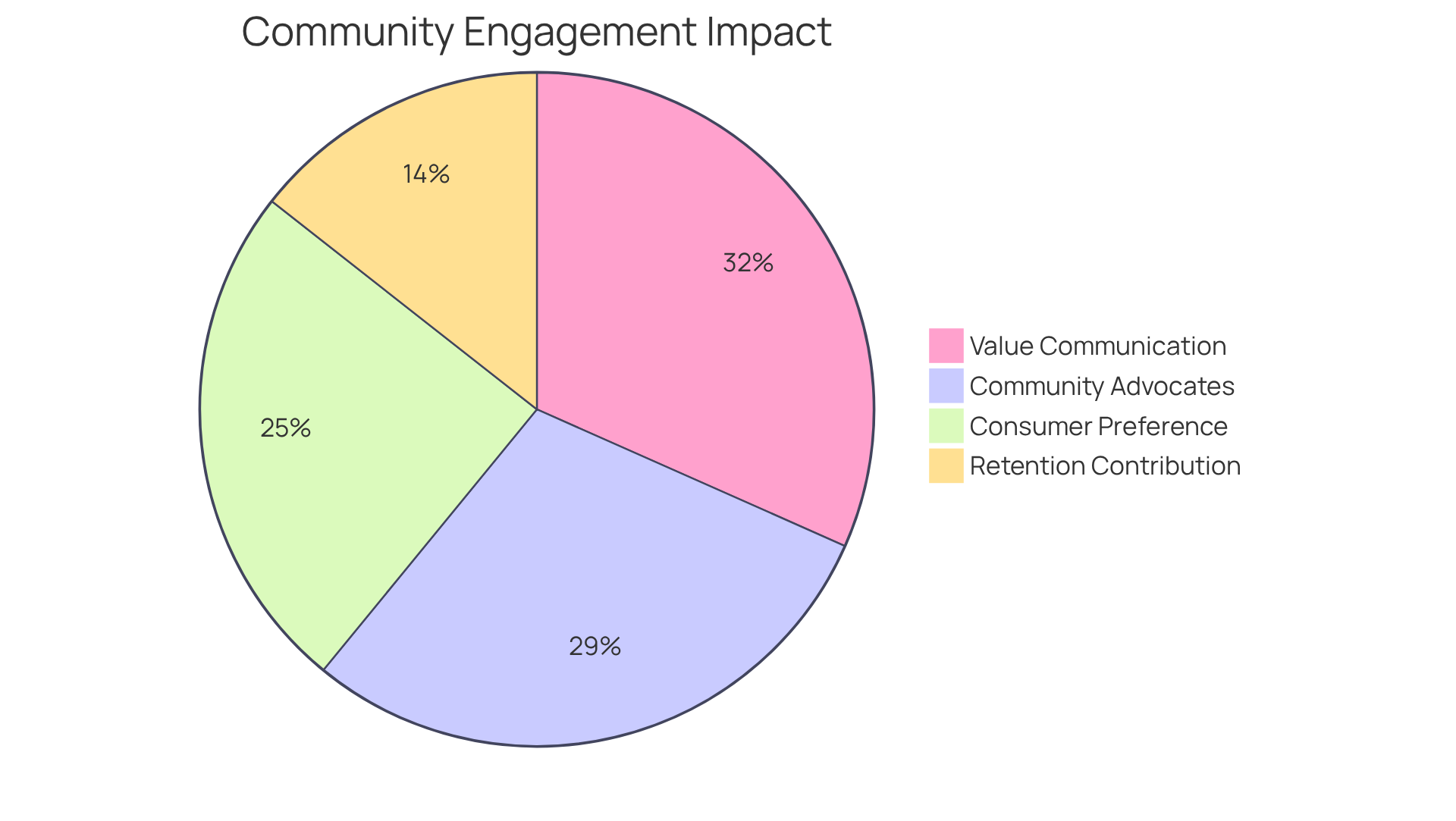
Encourage Reviews and Testimonials: Leverage Customer Voices for Trust
Motivating clients to provide feedback and endorsements is crucial for enhancing a company's image and . Actively not only yields valuable insights but also highlights positive experiences on websites and marketing materials. This practice builds trust with prospective clients; indeed, 93% of consumers indicate that , and 92% hesitate to finalize a purchase when evaluations are absent.
Furthermore, companies that engage with can significantly boost among current patrons. Notably, , underscoring the importance of engagement in cultivating a .
Current trends reveal that , with 51% of consumers preferring reviews that feature images. Successful companies, particularly in the hospitality sector, have implemented strategies to promote testimonials, including:
- Offering incentives for feedback
- Creating user-friendly platforms for sharing experiences
As Jack Shaw asserts, 'With a specialized focus on individual success and self-improvement, actionable steps can ignite personal growth.' By prioritizing consumer feedback and ensuring authenticity in evaluations, companies can not only enhance their reputation but also nurture customer retention and long-term commitment.
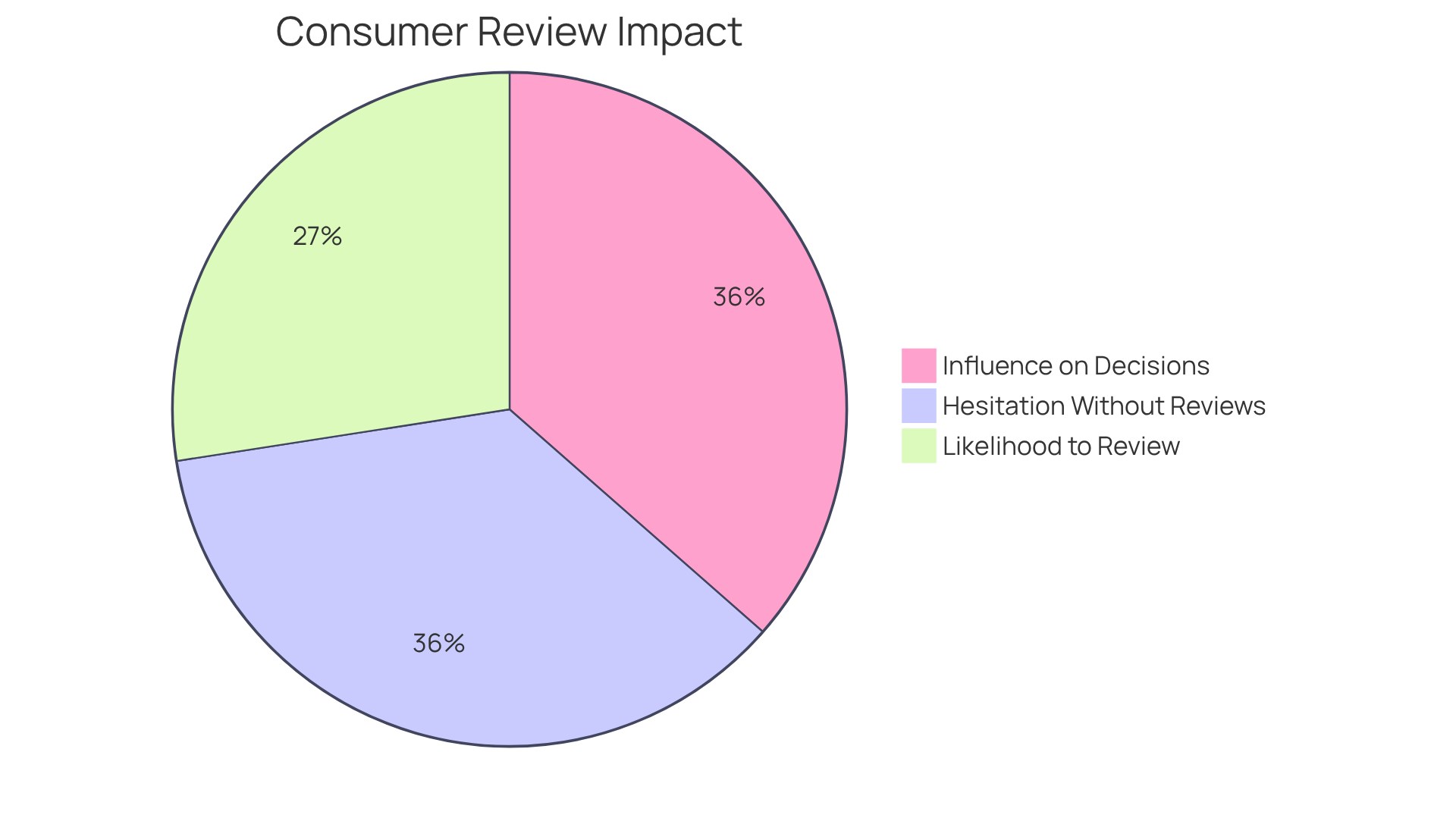
Create a Loyalty Program: Reward Repeat Customers for Their Commitment
Establishing a well-organized rewards system is a pivotal strategy for enhancing . Successful DTC companies, exemplified by Princess Polly, which achieves a remarkable 4x ROI through its rewards system, and Starbucks, where Rewards members account for 53% of total spending in U.S. stores, illustrate the effectiveness of incentivizing repeat purchases, referrals, and engagement activities. By offering tangible benefits—such as discounts, exclusive access, or points redeemable for future purchases—companies can effectively motivate consumers to maintain loyalty and engagement over time.
Current trends reveal that , underscoring the financial impact of these initiatives. Additionally, play a crucial role; , leading to increased commitment and spending. Notably, 70% of emotionally invested consumers spend twice as much on companies they are devoted to, further reinforcing the financial advantages of cultivating emotional attachment.
Experts emphasize the critical importance of personalization within reward systems. For instance, . Incorporating gamification elements can significantly enhance engagement, with companies witnessing a 47% increase in participation and a 22% rise in commitment when they implement interactive reward systems.
To optimize the effectiveness of customer retention, brands should focus on crafting a cohesive value proposition that integrates pricing and rewards. This approach not only but also strengthens client relationships, ultimately driving long-term profitability. Furthermore, an impressive 95.3% of indicate that being part of a program makes them more likely to shop with that company over others, highlighting the vital role of loyalty programs in fostering customer retention.
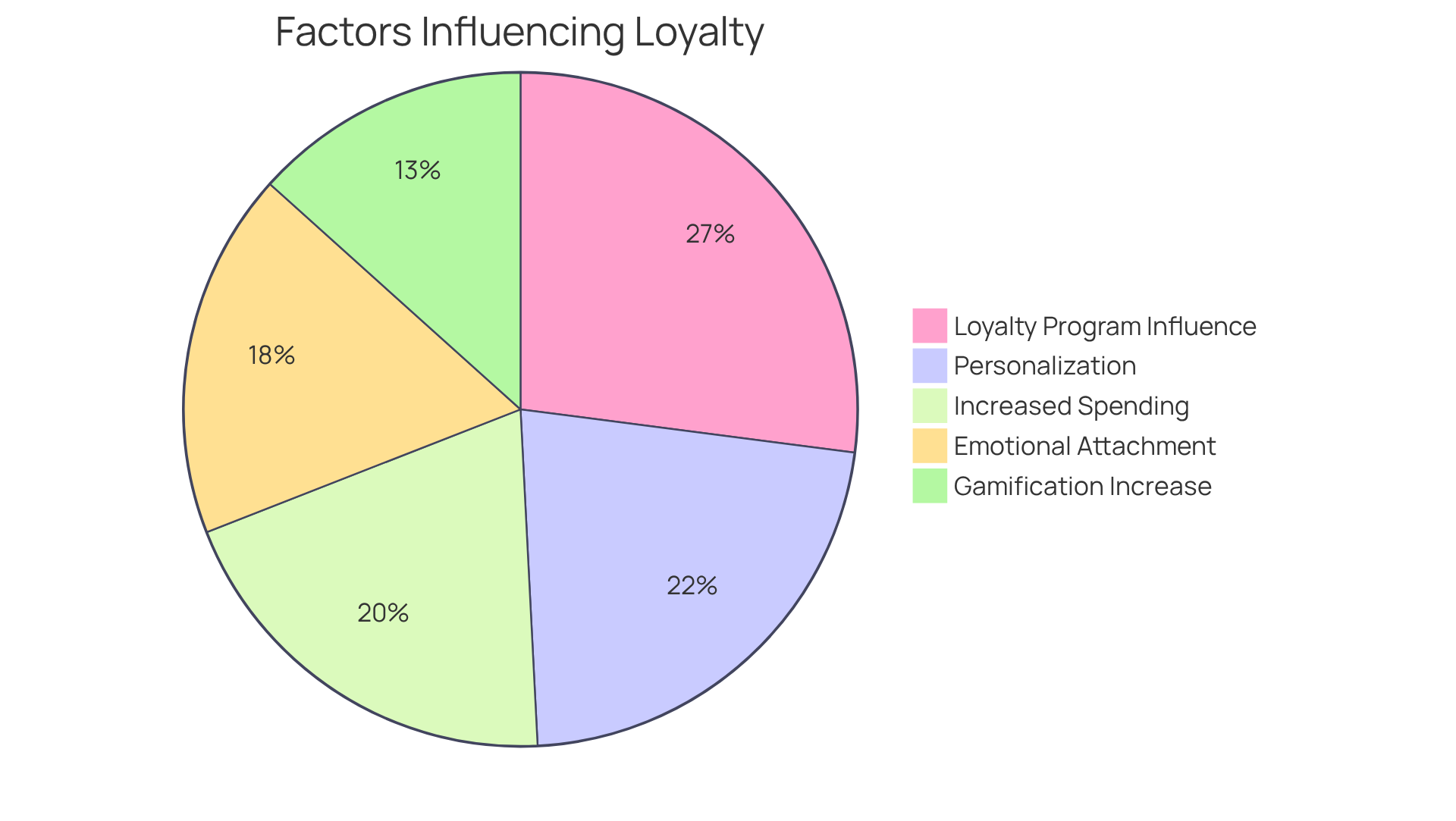
Conclusion
Boosting customer retention is an essential strategy for businesses seeking to thrive in competitive markets. By implementing effective techniques—personalized experiences, flawless customer service, and robust community building—companies can cultivate lasting relationships with their clients. These strategies not only enhance customer satisfaction but also drive repeat purchases and foster brand loyalty, ultimately leading to sustainable growth and profitability.
Key insights from the article underscore the importance of:
- Actively engaging with customers through feedback
- Offering tailored interactions
- Creating loyalty programs that reward commitment
Furthermore, establishing strong connections within communities and encouraging customer reviews can significantly enhance trust and stimulate word-of-mouth referrals. Each of these strategies plays a crucial role in nurturing emotional connections that translate into long-term loyalty.
In a rapidly evolving marketplace, prioritizing customer retention is not merely beneficial—it's imperative. Companies are urged to adopt these strategies and continuously adapt to consumer needs, ensuring they remain relevant and competitive. By investing in customer relationships and fostering a culture of appreciation, brands can secure their position as trusted leaders, driving not only customer satisfaction but also remarkable business success.
Frequently Asked Questions
What is Parah Group's focus in Conversion Rate Optimization (CRO)?
Parah Group specializes in high-speed Conversion Rate Optimization (CRO) programs aimed at enhancing customer retention for direct-to-consumer (DTC) companies.
How does Parah Group achieve measurable outcomes for brands?
They leverage data-driven strategies and insights into consumer psychology to optimize existing resources, resulting in increased ROI on ads, conversion rates, and average order values (AOV).
What is the significance of aligning a client's website and marketing strategy?
Aligning these elements is vital for cultivating long-term customer commitment, which fosters emotional connections and enhances profitability without requiring higher advertising expenditures.
What results can companies expect from implementing strategic loyalty initiatives?
Companies can see substantial increases in client engagement and customer retention, including a 50% improvement in re-engagement rates and a 21% rise in additional sales conversions.
Why is customer feedback important for enhancing retention?
Regular feedback systems, such as surveys and interviews, help brands understand customer satisfaction and identify areas for improvement, fostering a sense of commitment and connection.
How can brands build trust and loyalty through customer service?
By delivering impeccable service, ensuring support teams are well-trained and responsive, and exceeding client expectations, brands can create positive experiences that drive repeat purchases and improve customer retention.
FAQs











